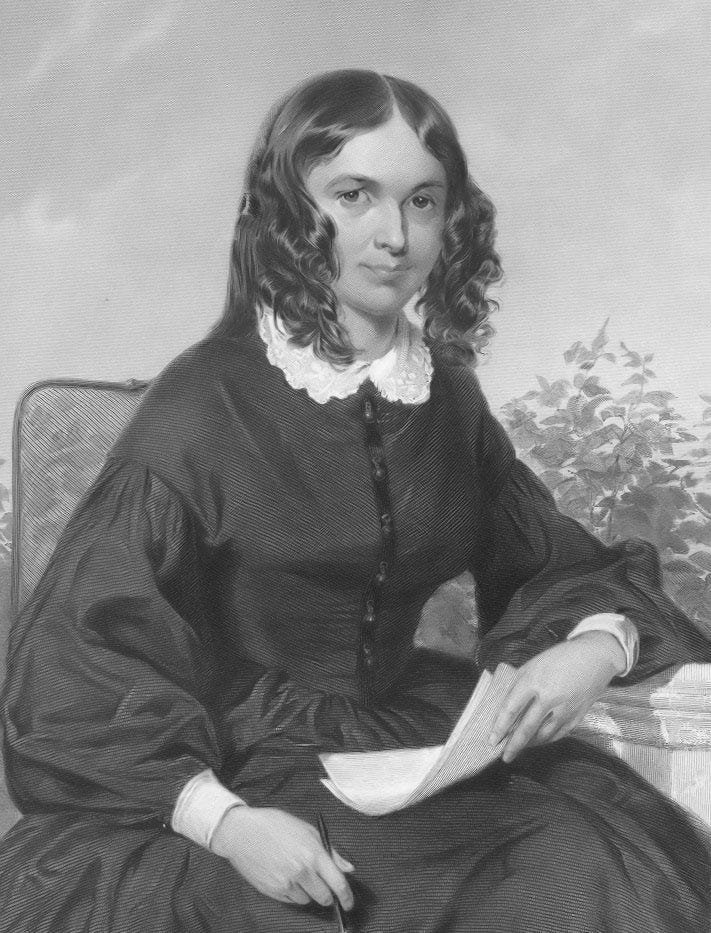How Do Books Enchant? Let Me Count the Ways
An unexpected poet drops by the Enchanted-by-a-Book closing ceremony
August 29, 2024 Update: Scroll to Group IV below to see new additions by and . If you are here for the first time, it will make more sense to start at the beginning. Welcome!
July 29, 2024
A few weeks ago, I invited one and all to write about a book, poem, or story that enchanted them. Now it’s time to close the circle of the project.
If you’re new here (welcome!), Quiet Reading offers a variety of inspiring features to boost your confidence in our wavering humanity. Articles range from profiles of resilient writers to original readings of spirited books to poetic interludes from everyday life. Since I love collaboration, the home page of this publication has a whole section dedicated to Community projects. We’re finishing one today. You’ll find delightful and insightful answers to the question “When were you enchanted by a book?” at the links below.
To mark the end of the collaboration, today’s post also includes a parting gift.
These essays about enchanting books and poems reminded me of Elizabeth Barrett Browning’s Sonnet 43: “How do I love thee? Let me count the ways.” (The full text appears at the bottom of this post.) So I’ve taken the liberty of revising Barrett Browning substantially (😳) and organizing our enchanted community under the stanzas of a poem I’m calling Sonnet 43 1/2.
Call it a collaboration between the famous English poet and yours truly, inspired by everyone linked below. I know few ways to face the headwinds of our time better than coming together in a spirit of reverence or play. The links will lead you to reverence. Barrett Browning and I supply the play.
I hope you enjoy our collaboration.
Group I. Sweet verses shiver with an ideal grace
How do books enchant? Let me count the ways They plumb our depth and breadth and height. To souls susceptible and spirits light Sweet verses shiver with an ideal grace.
A poetry anthology taught the fourteen-year-old
about enchanted verse. In “Under the lark full cloud,” he revisits the delectable phrases of Dylan Thomas, who once taught him to see his home place with fresh eyes. I dare you not to swoon:
In this thoughtfully structured essay,
peels back the layers of a poem that was published, surprisingly, on the New York Times Opinion page. As Stuckey investigated why a poem about a scorpion belonged in such a place, I felt myself growing into a wiser and better person:
A narrative poem about friends in the Canadian Rockies left
with majestic images that could only be satisfied by a life near mountains. Follow her link to the complete poem at the end of her post for the full, breathtaking effect:

Group II. They pierce pretension in a world ablaze
Some volumes mirror back our living days, Apocalyptic parables that fright And histories of youth pursuing right. They pierce pretension in an age ablaze.
- noticed that Octavia Butler’s dystopian Parable of the Sower (1993) was set in July 2024. Julie points out a few chilling similarities between Butler’s vision and our time:
Not everyone would find the history of a periodical enchanting, but
finds the polyphony of The Freaks Came Out to Write: A Definitive History of the Village Voice (2024) perfectly suited to the multi-voiced personal journalism that made this historic New York newspaper seem like a key to the city when she first moved there:

Group III. Some healing saint to save me with a breath
I stumble through the world, alone, obtuse Beset by griefs and shaken from my faith. I yearn for comfort from a spirit muse, Some healing saint to save me with a breath. From one enchanted word, if One so choose, I shall recover hope this side of death.
S. Dorman of
writes, “gradually softly the collective Work left an impress on me: this was an ancient long multitudinous diverse story ….” S. proposes the Bible as a work of sublime grandeur:
In a time of transition and soulful solitude,
found inspiration in a book about “soul friends.” Can a soul friend be oneself?

Group IV. May Wonder and Enchantment Never Cease
August 2024 P.S. Two fellow lovers of enchantment were occupied in other directions during the community writing period last month, but we are fortunate to add their posts. No sensible person puts an end date on enchantment!
- (Gessho) of gave a talk for a Village Zendo retreat about the Vimalakirti Sutra, a Buddhist teaching that’s full of wonder. Watch Sal give the talk on video, listen to audio, or read the text. (I enjoyed the video, taken in the retreat space, accompanied by some definitions of terms in the written post.) She tells a story about the “shift from the ideal self-liberation to the ideal of the liberation of all beings” and demonstrates how formless forms produce tenderness (and possibly humor):
And we hold a space for one more writer sending a link before month’s end. To be continued….
Ta - dah!
writes about art, books, movies, the craft of writing, and the tender human heart in the form of essays, a serial novel (currently in progress), a serial memoir, and more. She had the foresight to see back in July that her post on the Italian novelist Elena Ferrante, scheduled for this week, was just the thing she wanted to include in our roundup of enchantments. Her reading of the novel that a recent New York Times survey called the No. 1 “Best Book of the 21st Century” motivates me to pick up Ferrante’s My Brilliant Friend more than either HBO (which airs a film adaptation) or the New York Times survey. Mary not only shows us a level of sophistication in the novel that’s absent in the series, she also hints at the skill with character development that makes Ferrante such a critical and popular powerhouse:


Sonnet 43, by Elizabeth Barrett Browning "How do I love thee?" How do I love thee? Let me count the ways. I love thee to the depth and breadth and height My soul can reach, when feeling out of sight For the ends of being and ideal grace. I love thee to the level of every day’s Most quiet need, by sun and candle-light. I love thee freely, as men strive for right. I love thee purely, as they turn from praise. I love thee with the passion put to use In my old griefs, and with my childhood’s faith. I love thee with a love I seemed to lose With my lost saints. I love thee with the breath, Smiles, tears, of all my life; and, if God choose, I shall but love thee better after death. & Sonnet 43 1/2, by Tara Penry "How do books enchant?" How do books enchant? Let me count the ways They plumb our depth and breadth and height. To souls susceptible and spirits light Sweet verses shiver with an ideal grace. Some volumes mirror back our living days, Apocalyptic parables that fright And histories of youth pursuing right. They pierce pretension in an age ablaze. I stumble through the world, alone, obtuse Beset by griefs and shaken from my faith. I yearn for comfort from a spirit muse, Some healing saint to save me with a breath. From one enchanted word, if One so choose, I shall recover hope this side of death.
Thank you for visiting the linked posts and sharing whatever moves you from this compilation!
Barrett Browning Quatrain 1:
How do I love thee? Let me count the ways.
I love thee to the depth and breadth and height
My soul can reach, when feeling out of sight
For the ends of being and ideal grace.
Barrett Browning Quatrain 2:
I love thee to the level of every day’s
Most quiet need, by sun and candle-light.
I love thee freely, as men strive for right.
I love thee purely, as they turn from praise.
Barrett Browning closing sestet:
I love thee with the passion put to use
In my old griefs, and with my childhood’s faith.
I love thee with a love I seemed to lose
With my lost saints. I love thee with the breath,
Smiles, tears, of all my life; and, if God choose,
I shall but love thee better after death.
Subscribe to Quiet Reading with Tara Penry
A weekly refuge for our shared humanity inspired by authors, books, and this world of marvels.





















This is SO FREAKING CLEVER, Tara!! You've outdone even yourself -- and I seriously did not think that possible.
Thank you so much for compiling this excellent list AND for creating a sonnet for us. I love the image captions, well done!